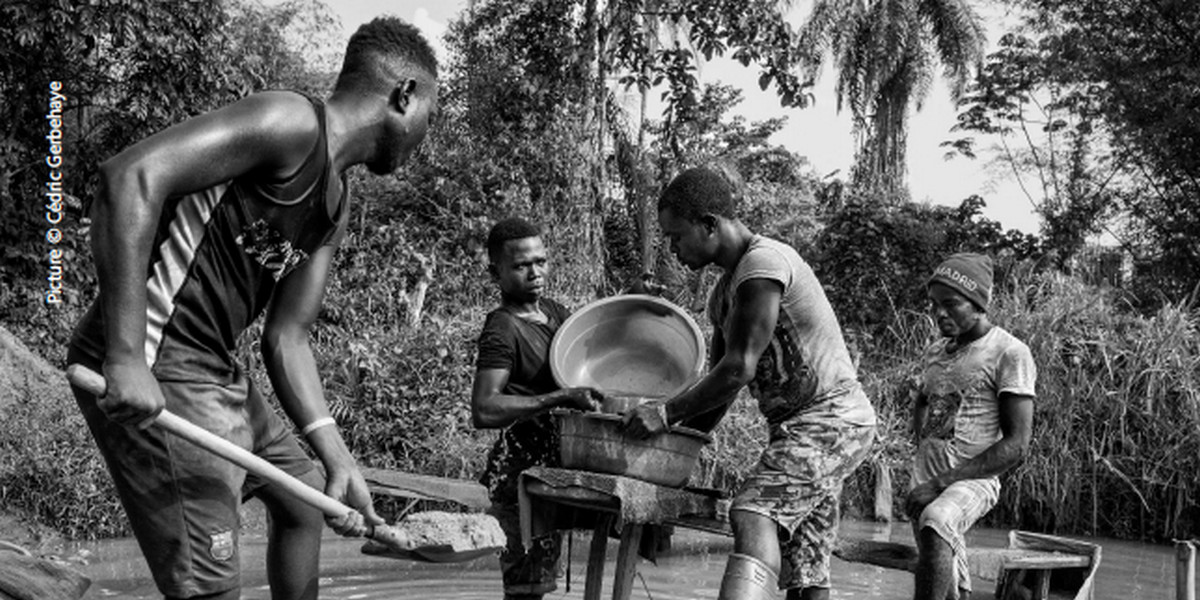NEW REPORT SHOWS DIVERGING IMPLEMENTATION AT EU MEMBER STATES’ LEVEL
In 2017, the European Parliament approved a Regulation laying down due diligence obligations for European importers of minerals and ores of tin, tungsten, tantalum and gold (3TG). Responding to calls from civil society groups, communities and faith leaders, the Regulation was an attempt to disrupt the link between conflict, human-rights abuse and the extractions of minerals and ores that are central to the technology we use every day. Although the Regulation represented a first-step in responding to the urgent situation of human rights and predatory practices in the extractive sector, CIDSE and other CSOs signaled the ineffectiveness of the measures adopted by the EU. In particular, the new law only applies to downstream supply chain actors, thus excluding all those companies that import 3TG minerals in the form of semi-finished products or components.

A new report published by a coalition of NGOs, including CIDSE members Focsiv and KOO/DKA monitoring the implementation of the Regulation, reveals serious gaps with the enforcement of its provisions by Member States that might further reduce the effectiveness of the law.
First, a lack of transparency: most Member States have chosen not to disclose the list of national importers of 3TG who are subject to the obligations set out in the Regulation. This means that when civil society groups, both in Europe and in producing countries, are aware of irregularities by a European importer, it will be difficult to raise the case with the Commission or with the Member States’ competent authority, as it will likely be impossible to know whether the company is covered by the Regulation or not. This is despite the text of the law, which allows civil society to raise substantiated concerns with regards to the behavior of importers.
Second, Member States are taking very different approaches to the kind of corrective actions and sanctions they will engage when importers do not comply with their due diligence obligations. At the moment, a company might be fined up to a maximum of 726 EUR in Austria, while in Luxembourg the ceiling is set at 100,000 EUR. Such an approach clearly fails in setting a fair standard across the EU and to incentivize compliance.
A compromise with no tooth
The Regulation on importers of 3TG is the fruit of a political compromise that weakened the scope and reach of the law. The current text, as it stands, not only is limited to downstream importers of 3TG, it also contains provisions that open the way for loopholes and non-compliance. For example, the volumetric threshold approach used to determine which importers are covered by the Regulation risks leaving out many high-risk importers and pushing others to fraction their imports in smaller volumes to avoid scrutiny.
Similarly, according to the report, the white list of smelters and refiners is already being interpreted by some Member States’ competent authorities as a ‘free pass’ to companies sourcing from them. The same is true for companies that are part of an industry scheme which has been accredited by the Commission, and this notwithstanding the fact that the law explicitly calls for due diligence obligations to remain the responsibility of individual companies when they are part of an accredited industry scheme.
In short, what could have been a real opportunity to break the vicious cycle of human rights abuse linked to the extraction of 3TG has become another missed opportunity for the EU.
Lessons for a horizontal EU law on mandatory human rights and environmental due diligence
The Regulation on importers of 3TG is scheduled to undergo revision in 2023; civil society groups are already calling for some of the gaps highlighted above to be addressed. The experience with the Regulation teaches us a few useful lessons for the ongoing debates on a horizontal EU law imposing human rights and environmental due diligence to companies operating in Europe:
- It is clear that an effective law must cover the entirety of the value chain. Only covering actors on the downstream of the chain leaves out large operators, those who are capable of influencing the market in the country of origin and those who distribute finite products, who are the best placed to influence market behaviors.
- It is also clear that a risk-based approach is not compatible with black-and-white criteria, such as white lists. Risk is spread unevenly along value chains. Companies importing the largest volume of minerals are not necessarily the ones engaging in the riskier behaviors. Similarly, a future horizontal EU law on the matter cannot rely on blanket exclusions in scope and content, excluding or including companies according to size or place of operation.
- Finally, strong enforcement mechanisms must be in place for any law to be effective. The discordant and contradictory implementation of the 3TG Regulation at national level highlights the importance of strong, coordinated enforcement and of effective sanctions for non-compliance.
If the objective of a future EU law on mandatory human rights and environmental due diligence is to avoid harmful corporate behavior, watered-down compromises and bureaucratic loopholes will not be helpful. Communities and people in producing countries and European citizens are asking for an effective legal instrument, tackling seriously the violation of their rights. European lawmakers must now respond taking stock of experiences from the past.
CIDSE contact: Giuseppe Cioffo, Corporate Regulation and Extractives Officer

